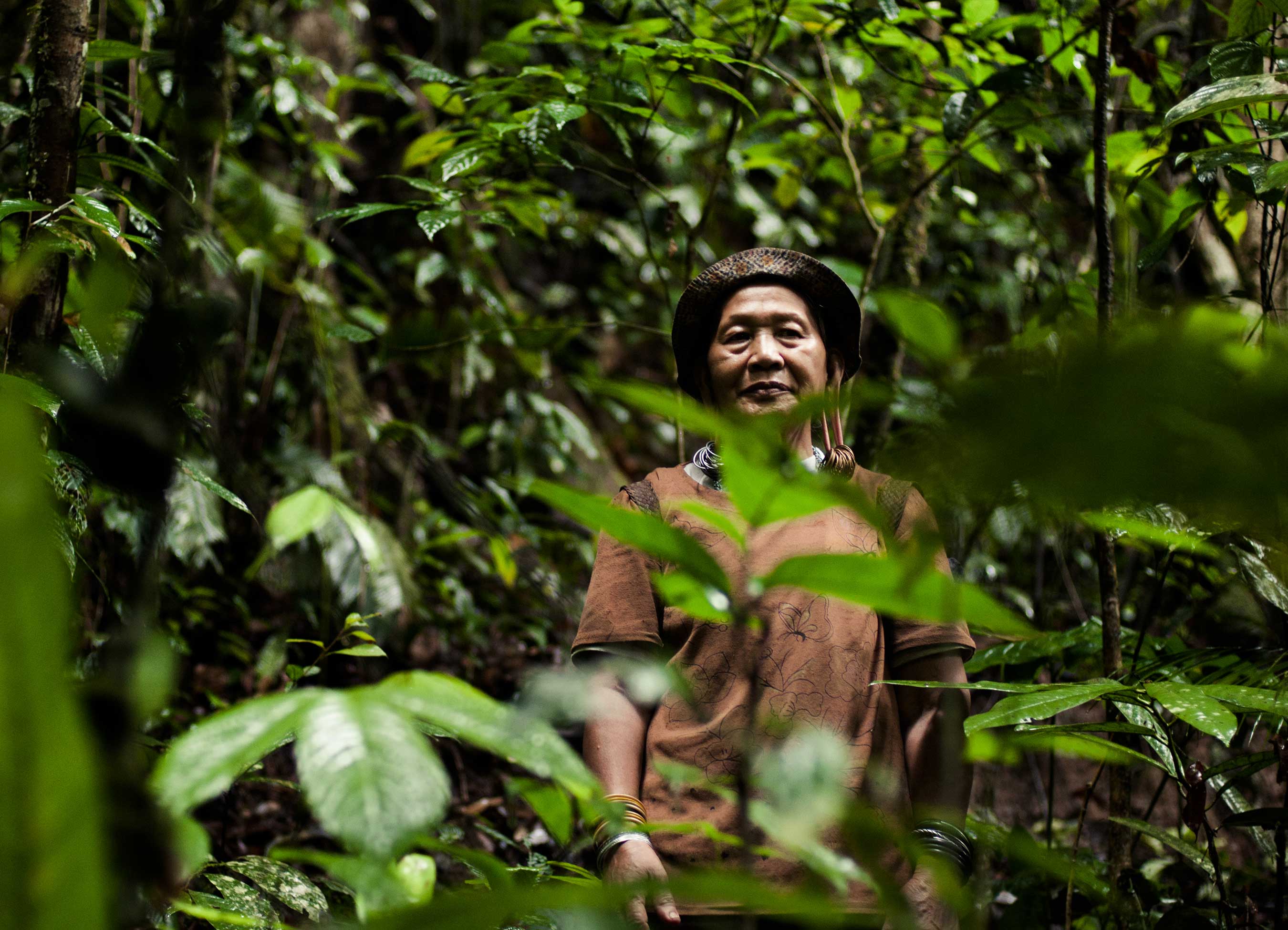
The Penan
During his time in the rainforest of Sarawak, Bruno Manser lived with the Penan. The Penan have been in a continuous struggle for over 30 years for the survival of their forest and their way of life. In doing so, they stand up for their right to their land, the acceptance of their culture and the preservation of the rainforest.
Nomads in the rainforest
The Malaysian state of Sarawak on the island of Borneo is one of the regions of the world with the greatest biological diversity. Its rainforests are home to a variety of plants and animals and a rich indigenous culture that has been shaped over centuries. About half of the population are non-Muslim indigenous people, with the Iban making up the largest group. The Penan and other inland peoples such as the Kelabit, Kenyah or Kayan also collectively refer to themselves as the Orang Ulu (highland people).
The approximately 10,000 Penan are divided into two ethnic groups, the eastern and western Penan. The Bruno Manser Fonds works mainly with the eastern Penan (Penan Selungo), with whom Bruno Manser lived. They can be found in the Baram and Limbang river basins in the far north of Sarawak.
Originally, the Penan lived as nomads in and from the rainforest. They lived by hunting, fishing and gathering fruit and plants. The basic food of the Penan is sago, a starchy flour made from the pith of the sago palm, which is processed into porridge. Hunting is still done with the typical blowpipes and poison darts, but also with rifles. As a nomadic people, the Penan moved on as soon as the sago deposits at one location were exhausted. The Penan use rattan, fibres from a wild palm tree, to weave mats and baskets.
The way of life of the Penan has changed considerably since the middle of the 20th century due to external influences. The originally animistic Penan were Christianised by missionaries of the Australian Borneo Evangelical Mission and were baptised. Over the last 50 years, all Penan groups have settled down, some of them retaining semi-nomadic elements of their traditional culture.
Deforestation and resistance
The incipient deforestation of their rainforests in the 1980s was a major break in the Penan way of life. Deforestation not only destroys nature and their livelihoods but also threatens the survival of their unique rainforest culture. The history and identity of the once nomadic people are tied to their land and forests.
With the help of Bruno Manser, the Penan organised themselves in the late 1980s. They tried to stop the advance of the logging companies by blocking logging roads. With their resistance, the Penan received a great deal of international attention, especially in the 1990s. Some primary rainforest areas were thus saved from destruction.
Today, the Penan continue to fight against the deforestation of their territory. Recently they have also had to defend themselves against the threat of plantations and dams. The Bruno Manser Fonds supports the Penan in their efforts to preserve the rainforest and their culture. Our projects and campaigns give you an impression of our work.